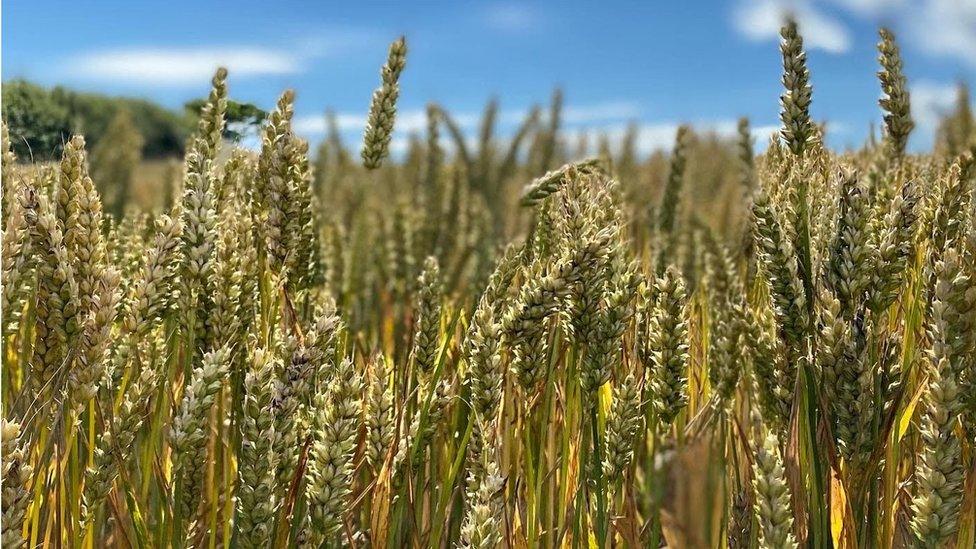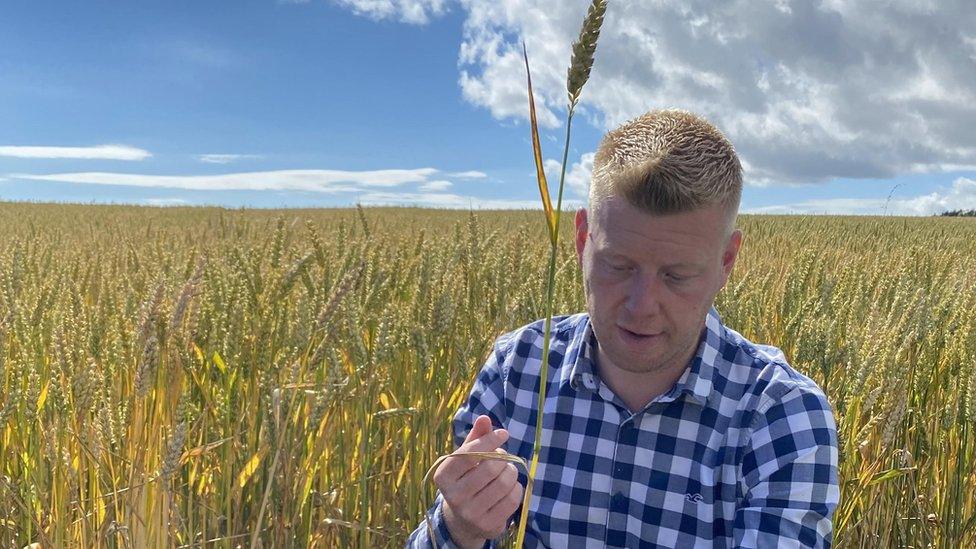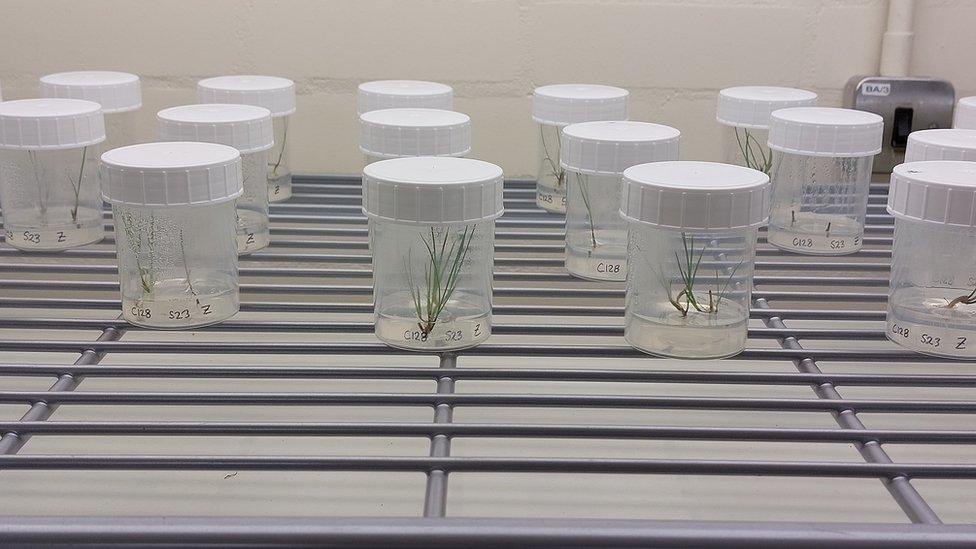Call for Wales gene-edited crops to fight 'food crisis'
- Published
- comments

Some Welsh farmers want the Welsh government to give gene-edited crops the go ahead.
Some farmers claim the Welsh government should drop its opposition to gene-editing crops to help tackle a looming food crisis.
Legislation is proposed for England to allow gene-edited plants and animals to be grown and raised for food.
There are no similar plans in Wales, and one farmer in Pembrokeshire said the technology could help produce crops that can withstand extreme weather.
The Welsh government said it would continue to have a cautious approach.
Currently the gene editing process falls under the same rules and restrictions as genetically modified organisms (GMOs).
But, the UK government plans to change that with its Genetic Technology (Precision Breeding) Bill.
An Aberystwyth University professor said gene editing should not be confused with genetic modification, and does not involve adding DNA.
But opponents claim gene editing is genetic modification (GM) with "better PR".
High on the hills of Camrose, Pembrokeshire, Tom Rees's Dudwell Farm is full of growing wheat and potatoes.
In light of the recent dry spell, he believes that technology such as gene editing could help produce crops that can withstand extreme changes in weather such as drought and heavy rainfall. He also hopes that gene editing can produce crops that are disease-resistant.

Tom Rees says the less fertilisers farms need to spray, the better
"We're at the beginning of a food crisis," said Mr Rees, "and anything we can do to improve the quality of what we produce, we need to look at."
"For us to increase yields and improve quality, any technology we can have that gives my wheat an advantage over any disease has got to be good. The less fertiliser we can spray the better."
What is gene editing?
Gene editing makes the same changes that occur spontaneously in plants or that occur through plant breeding, according to Professor Huw Jones, of the Institute of Biological, Environmental and Rural Sciences at Aberystwyth University.
But he said the process made those changes in a "more precise, more targeted way and in a shorter timescale".
Professor Jones said gene editing should not be confused with GM, which sees moving DNA from one organism to another.
"The plant genome is like an instruction manual in the cell - it tells the cell what to do.
"Gene editing is like taking a nice sharp pencil and making precise changes in the ACGT sequence in that genome," he said, adding that it makes "changes in just the host genome without any added DNA".

Gene edited specimens at Aberystwyth University
The technology is not currently in use for food production because of EU rules, which the UK can now deviate from.
NFU Cymru's policy adviser Huw Thomas said Wales "must be open" to the technology and argued it could help ensure Welsh farmers remain competitive.
"Events across the world such as the war in Ukraine have put a lot of pressure on food supply and this of course can impact on our ability as consumers to buy food."
"This technology is on the horizon and it's an opportunity for us to do something different to Europe."
'Why are we altering DNA in plants'
Liz O'Neill is director of the anti-GM campaign group, GM Freeze and she insists that "gene editing is GM with better PR."
"It is altering the genetic profile of an organism in the lab in ways that could go wrong so needs to be checked."
There are farmers who oppose gene editing too.
Gerald Miles, an organic farmer in Pembrokeshire, said: "Why are we altering the DNA in plants? Plants in nature have evolved over billions of years - they've survived and altered naturally.
"We should use the precautionary principle. If we speed things up in nature we could speed things up to a possible disaster."
"We need to keep strict regulation because once you release it, it is difficult to reverse it," he added.
'Cautious approach'
The UK government said its bill will "remove unnecessary red tape inherited from the EU in order to create a simpler and more proportionate regulatory regime",
"Precision breeding technologies, such as gene editing, have great potential and can help us reduce pesticide use, lower costs to farmers, increase food production and adapt to the impacts of climate change."
The Welsh government is sticking to a more cautious approach,
It said the "climate change and nature emergencies should focus our attention on research into alternative biological or agro-ecological approaches".
"We will continue to adopt a cautious approach, making our decisions based on proven science", a spokesman said.
The Welsh government does however acknowledge that "new genetic technologies may well have a part to play" in the future, and hopes for a "full and open discussion between the four UK governments."
But Wales Office minister David TC Davies argued that Welsh farmers would suffer if this technology was not available to them, but was in England.
"What worries me slightly is that I remember from my days in the Welsh assembly, and when we discussed GM, there was a strong ideological view then.
"I fear that some of the antipathy against gene editing is based on that, rather than on sound scientific principles."
Related topics
- Published25 May 2022

- Published20 February 2022

- Published4 September 2020

- Published25 July 2018
